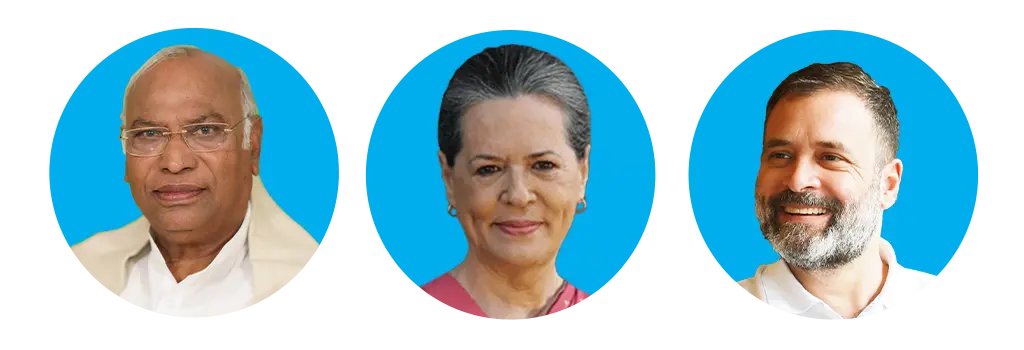Economy
Our Economic Policy
Economic justice is as important as political and social justice. Sound economic policies will ensure that India, a developing country, will attain the status of, first, a middle-income country and, then, a developed country.
Congress' economic policy has evolved over the years. In 1991, the Congress ushered in the era of liberalization and steered the country toward an open, free and competitive economy with regulatory oversight. The country reaped enormous benefits in terms of wealth-creation, new businesses and entrepreneurs, a huge middle class, millions of jobs, important innovations in education and healthcare, and exports. Millions of people were lifted out of poverty. We reiterate our commitment to an open economy in which economic growth will be driven by the private sector complemented by a strong and viable public sector.

TIME FOR A RE-SET
After 33 years, the time is ripe for a re-set of economic policy. We need a Nav Sankalp Economic Policy. The cornerstone of the Nav Sankalp Economic Policy will be JOBS. To create jobs, India must become a producing economy. We must produce goods and services for ourselves and for the world. There is a huge opportunity for India to emerge as the world's biggest producer.
We reject jobless growth and the BJP's legacy of job-loss growth. We will address the issues of inflation; extreme poverty among a significant section of the people; hunger; nutritional deficiency among women and children; and the growing inequalities of income and wealth.
The three goals of our economic policy were, and will be, work, wealth and welfare.
WORK
Work means there will be plenty of jobs and sufficient opportunities for self-employment and starting businesses.
- We will create thousands of jobs as outlined in the next chapter. The best creator of jobs is the private sector. In particular, the MSME sector is the creator of the largest number of jobs, especially for workers with average education and average skills.
- We will support the private sector and every kind of enterprise — large, medium, small and micro — in their endeavour to create jobs and produce goods and services.
- We will remove the current environment of distrust and fear, and create a healthy eco-system where private enterprises, regulatory authorities, tax authorities and government will work in a spirit of mutual cooperation and respect.
- We will protect innovation and intellectual property rights, provide access to finances, and ensure the freedom to produce and sell anywhere in India or abroad.
- We will support free trade and rule-based international trade and commerce.
- We will encourage and participate in bilateral and multilateral trade agreements.
- Regulatory oversight will be based on clearly enunciated laws and rules that will be applied fairly and without discrimination.
- We will ensure a level playing field for all.
- We are opposed to monopolies and oligopolies and crony capitalism.
- We will ensure that no company or person arrogates to itself or himself the financial or material resources or the business opportunities or the concessions that ought to be available to every entrepreneur.
- Our policy preference will be in favour of business enterprises that create a large number of jobs.
- Full employment is our goal and we will make every effort to ensure that the large workforce is gainfully employed.
- We will introduce reforms in industrial and labour laws to restore the balance between labour and capital to meet our twin goals of full employment and high productivity gains. The Labour Codes passed by the BJP/NDA government will be reviewed and amended.
- We will address the issues of gender discrimination and gender inequality in workplaces and in accessing economic opportunities.
- We will ensure that banks offer low-interest loans to Self-Help Groups.
- Congress will undertake a comprehensive review of various charges levied by banks, stop the exploitation of customers, and rationalize the charges for bank services.
- We will launch an urban employment programme guaranteeing work for the urban poor in reconstruction and renewal of urban infrastructure.
- We will make a law to specify and protect the rights of gig workers and unorganised workers and enhance their social security.
- We will propose laws to regulate the employment of domestic help and migrant workers, and ensure their basic legal rights.
- We will reorient the tax policies towards employment and wages as well as investments and profits.
- We will address the growing inequality of wealth and income through suitable changes in policies.
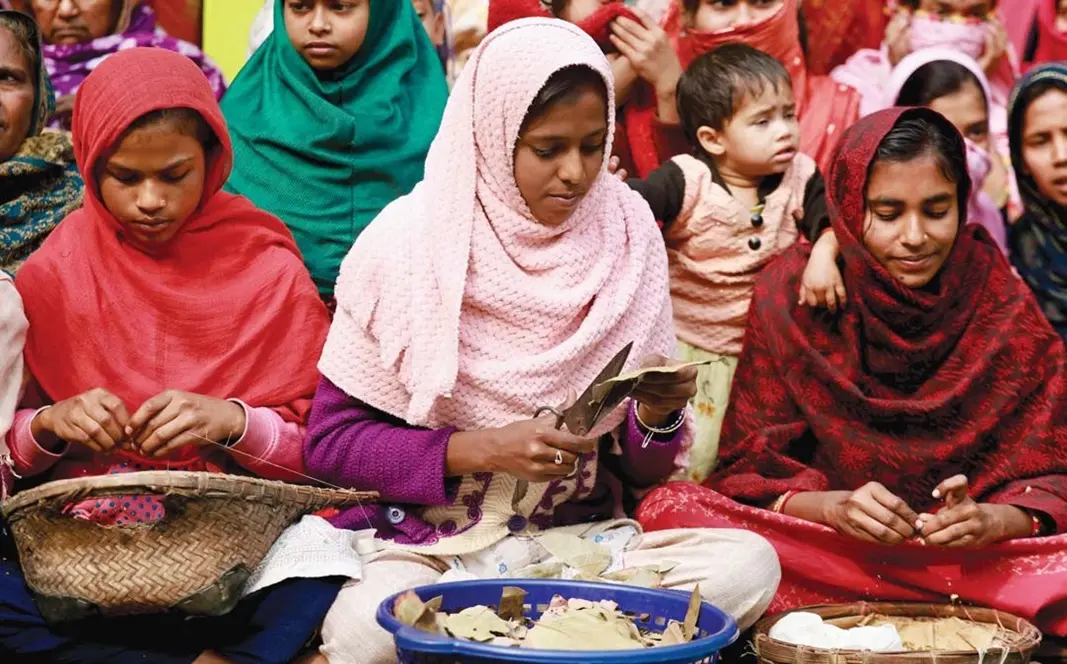
WEALTH
Wealth and wealth creation are the goals of any business. Industrial and business policies and regulations will be designed to facilitate the production of goods and services in larger volumes and higher values. While production is important, productivity is equally important. Any impediment, legal or administrative, to larger production or higher value will be removed. We will facilitate access to finances, raw materials, technology, intellectual property, and other resources both from within India and through imports. Business enterprises will have the liberty to sell goods and services within India or through exports. All laws and rules that inhibit free and fair trade will be reviewed and changed.
India's GDP in 1990-91 was approximately ₹25 lakh crore in constant prices. In 13 years, first under a Congress government and later under coalition governments, the GDP doubled and reached a value of ₹50 lakh crore in 2003-04. In 10 years under the UPA, the economy doubled again and the GDP was at ₹100 lakh crore in 2013-14. A ₹100 lakh crore economy was inherited by the BJP/NDA government but it wasted the golden opportunity. If the UPA had continued in office, the economy would have doubled again and stood at ₹200 lakh crore in 2023-24. Alas, due to the BJP's mismanagement, the GDP will reach a level of only ₹173 lakh crore by the end of 2023-24 falling short of a target that was unachievable.
The Congress is committed to rapid growth and generation of wealth. We have set a target of doubling the GDP in the next 10 years.
WELFARE
Welfare of all is the goal of all work and the creation of wealth. Owing to the skewed policies of the BJP/NDA, the people of India are divided in economic terms. There is a small class of very rich, a substantial middle class, a large segment of people above the poverty line but not yet the middle class, and nearly 22 crore people who are poor. Under a Congress government, the welfare of the poor will be the first charge on all government resources. It will be the Congress' endeavour to ensure that the 22 crore people below the poverty line are lifted above the line in the next 10 years; that they are able to enjoy the fruits of education, healthcare, housing, drinking water, sanitation, electricity and, above all, opportunities for jobs/work; and are made strong and self-reliant to compete with others who are higher on the economic ladder.
As people move up the economic ladder, their needs are for better infrastructure and better goods and services. Besides, we must get the Indian economy and the Indian work force 'future-ready'. The challenges of the future include the changes in the global economy, advanced technology such as Artificial Intelligence, robotics and machine learning, and climate change. The future of our energy is Green Energy. We will mobilize the massive capital required for our green energy transition.
The Nav Sankalp Economic Policy will aim to build a fair, just and equal-opportunity economy and bring prosperity to all sections of the people. Congress will herald a new beginning, just as we did in 1991, involving all sections of the people in nation-building. The time has become to re-set and re-prioritize our roadmap for economic development in the context of the twin challenges to our economy, namely, UNEMPLOYMENT and INFLATION.
We have made specific promises in different sections of this Manifesto. By implementing these promises, we hope to achieve the paramount goal of ushering in a fair, just and equitable economy that will make India a rich country, and that will be resilient to adapt to a changing world.
UNEMPLOYMENT - MEETING THE CRY FOR JOBS
The most challenging issue today is widespread unemployment. The cry everywhere is for jobs. The unemployment rate ranges from 10 per cent (for age 15-29) to 42.3 per cent (for graduates under age 25) to 9.8 per cent (for graduates of age 30-34). No one has any faith in the BJP which deceived the people with the false claim that it will create 2 crore jobs a year. The BJP/NDA government's response to the grave problem was to abandon labour force surveys, distort data and pretend that the problem does not exist. We acknowledge the problem and we promise to create millions of jobs through concrete initiatives
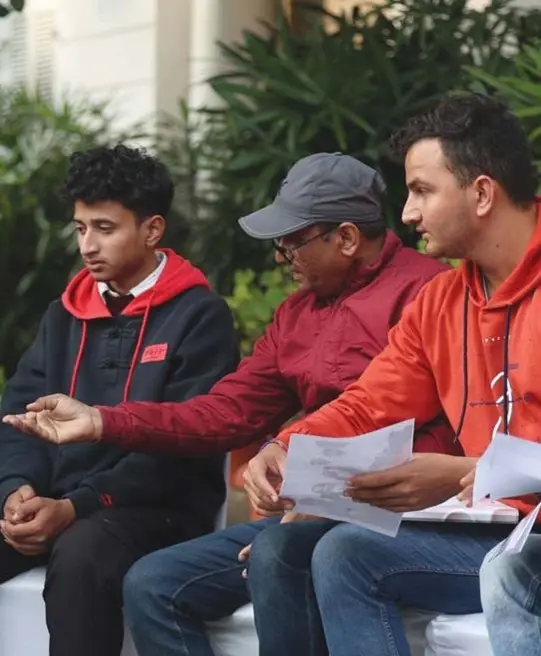
- Fill the nearly 30 lakh vacancies in sanctioned posts at various levels in the central government, teaching and non-teaching posts in central educational institutions, posts of doctors, nurses, paramedics and other supporting staff in central government medical institutions, and vacancies in the Central Armed Police Forces (CAPF).
- Publish a job calendar for each department, institution and public body with details of vacancies and the timelines to fill the vacancies.
- Abolish the Agnipath programme and direct the Armed Forces (Army, Navy, Air Force and Coast Guard) to resume normal recruitment to achieve the full sanctioned strength.
- Appoint a second ASHA worker in all villages with a population exceeding 2,500 persons.
- Double the number of Anganwadi workers and create an additional 14 lakh jobs.
- Create a new employment-linked incentive (ELI) Scheme for corporates to win tax credits for additional hiring against regular, quality jobs.
- Launch a strategic mining programme to explore and mine rare earths and critical minerals with the object of increasing the share of mining to 5 per cent of GDP and creating 1.5 crore jobs for unskilled and skilled workers in the mineral-rich states. The programme will be implemented consistent with stringent environmental and labour safety standards.
- We will launch an urban employment programme guaranteeing work for the urban poor in reconstruction and renewal of urban infrastructure.
- Provide jobs for low-education, low-skilled youth by launching a Water Bodies Restoration Programme and a Wasteland Regeneration Programme that will be implemented through village panchayats and municipalities.
- Establish an autonomous non-profit society involving the state governments, universities and business organisations to establish at least one Skills Training Institute in each district to impart skills through short and long-term courses to youth in the age group of 18-29 years. Incentivise corporates to use CSR funds for skill training in recognised skill training institutes.
- Incentivise panchayats to establish and maintain solar grids that will generate power for common purposes and create jobs at the panchayats level.
- Amend the laws to make workplaces safer for women workers and with facilities for care of small children. Facilitate travel to such workplaces.
TAXATION AND TAX REFORMS
Taxation forms the core of governance. The last ten years of the BJP/NDA government is a case of “taxation gone berserk”. The share of taxes paid by the common person and the poor through regressive indirect taxes has increased significantly and the share of taxes paid by corporates has decreased - the exact opposite of what a people-friendly and progressive taxation policy should be. Despite the tall claims of increasing the tax base through demonetistion and GST, India's overall tax to GDP has not increased in the last decade, leaving very little room for increased expenditure. Congress will undertake a complete overhaul of India's taxation system to make it people-friendly and efficient, and to incentivise private savings and investment.
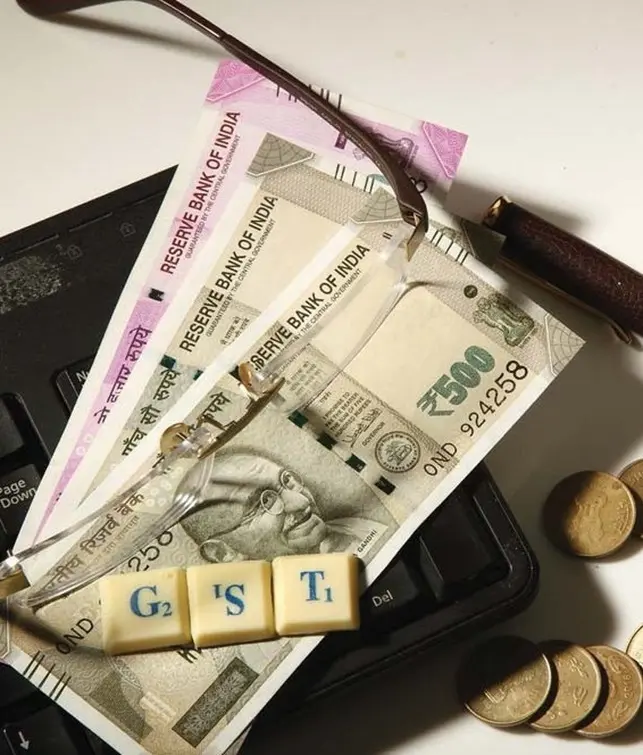
- Congress will enact a Direct Taxes Code that will usher in an era of transparency, equity, clarity and impartial tax administration of direct taxes.
- Congress will maintain stable personal income tax rates throughout its term. This will ensure that the salaried class is not subjected to rising tax rates and have clarity to plan their finances over the medium-to-long period.
- We will eliminate “Angel tax” and all other exploitative tax schemes that inhibit investment in new micro, small companies and innovative start-ups.
- Congress will lessen the burden of tax on MSMEs owned by individuals and partnership firms.
- We will end the duplicitous “cess” raj of the Modi government to deny states their rightful share of tax revenues by introducing a law to limit Union cess and surcharges to 5 per cent of gross tax revenues.
- Congress will replace the GST laws enacted by the BJP/NDA government with GST 2.0. The new GST regime will be based on the universally accepted principle that GST shall be a single, moderate rate (with a few exceptions) that will not burden the poor.
- GST will not be levied on agricultural inputs.
- The GST Council will be re-designed. It will be the final authority on policy and on all matters relating to GST.
- The administration of GST laws will be divided horizontally between the central government and the state governments. Small GST-payers below a threshold will come under the purview of the state governments.
- A portion of GST revenues will be allocated to pnchayats and municipalities.
- Shopkeepers and small retail businesses that face intense competition from online businesses will be given significant tax relief.
- The Income Tax Appellate Tribunal (ITAT), the Goods and Services Tax Appellate Tribunal (GSTAT) and the Customs Appellate Tribunal (CESTAT) will be autonomous judicial bodies without interference by the government.

INDUSTRY
In order to become a developed economy and create good quality jobs for hundreds of thousands of youth, it is critical that India transitions from a consumer economy to a producer economy. India must become a manufacturing powerhouse that produces goods and services for itself and the world. To this end, beyond economic and business factors, the most vital ingredient is social harmony that will attract investments and a skilled labour force. It is thus no surprise that in the last 25 years, India's manufacturing share of GDP has been higher during the Congress rule. On the contrary, in the last 10 years (2014-24), the share of manufacturing has stagnated at 14 per cent.
- Congress resolves to make India a manufacturing hub by raising the share of manufacturing from 14 per cent to 20 per cent of GDP in the next five years.
- The most immediate objective will be to restore a healthy, fearless and a trustworthy climate for businesses. While a Congress government in 1991 abolished industrial licensing and controls, the independent regulatory regime that was put in place has deteriorated into a system of overt and covert controls. We will conduct a comprehensive review of the current rules and regulations and repeal or amend them in order to restore freedom to industry, business and trade.
- Congress will aim for India attaining a position of leadership in multiple industries such as steel, metals, garments and textiles, cement, automobiles, electronic goods, pharmaceuticals, engineering goods, petroleum products, chemicals, and mining rare earths and critical minerals.
- According to the RBI, nearly 60 per cent of the large central government projects have been stalled or delayed and costs have risen by nearly ₹5 lakh crores. Congress will address the problem in a mission-mode and find ways and means to revive the stalled projects with the help of the private sector.
- Congress will reform the production-linked incentives (PLI) scheme to target specific sectors that can create thousands of jobs by making India one of the top 5 producers in the world in that sector.
- We will introduce a new employment-linked incentive (ELI) Scheme for corporates to win tax credits for additional hiring against regular, quality jobs.
- We will give the highest priority to intellectual property rights and to the registration, acquisition, protection and use of IPR in small, medium and large businesses.
- Congress will create a level playing field for all businesses. We are opposed to monopolies and oligopolies. We will strengthen the Competition Commission of India in order to ensure that India will be an open and competitive economy.
- Congress will simplify the corporate taxation structure and end tax terrorism. We will restrain the investigating agencies from misusing their powers to reward or punish corporates and ensure that they act within the strict limits of the law.
- We will encourage and support the use of Artificial Intelligence, robotics, etc. which will create new and frontline jobs. At the same time, we will ensure that there are more job opportunities in sectors that use conventional technology.
INFRASTRUCTURE
The hardware of an economy are roads, railways, ports, airports and electricity. Capital expenditure and modern technology have to be mobilized to create infrastructure of world class quality. A variety of models of building infrastructure must be adopted according to the needs of the economy.
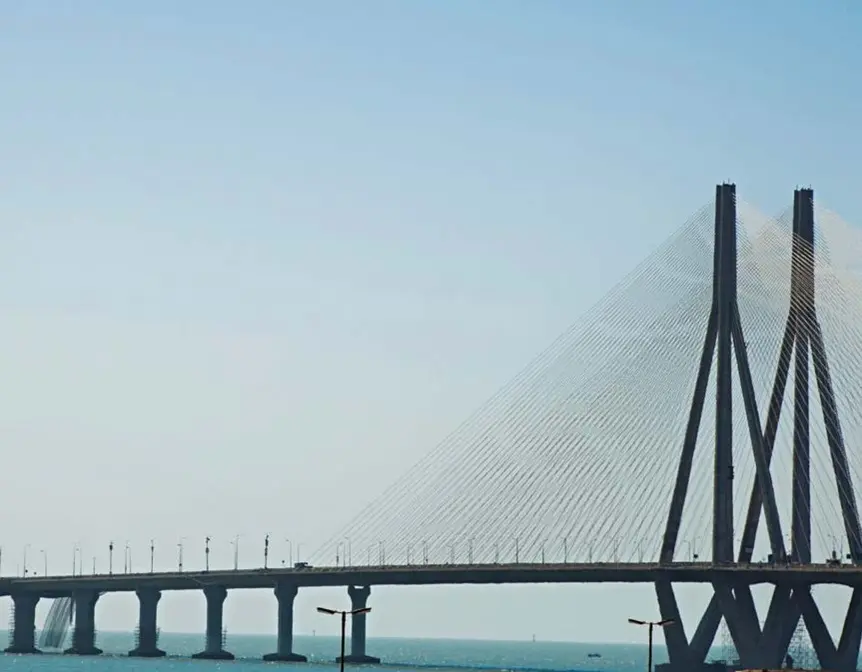
- Congress will mobilize public and private capital, increase the pace of construction, and augment infrastructure. The focus will be on design, quality, speed of implementation, maintenance and accountability.
- Private capital must be attracted to create public assets and infrastructure. The BJP/NDA government has inverted this model and is using public money to create assets that eventually find their way into private hands. Congress will stop this loot of public money.
- We will modernise the outdated railway infrastructure but in doing so we will ensure that trains and stations serve the needs of the common people and commuters. The railway services and facilities available to the poor and middle classes will be continued.
- KAVACH, an anti-collision device, was developed during the term of the UPA. KAVACH will be installed in all train engines and routes to improve passenger safety on Indian railways.
- Transport facilities and connectivity between rural areas and the nearby town/city will be augmented so that people may live in rural areas and work in urban areas.
- Congress will implement a comprehensive plan for multi-modal urban public transport.
- Road tolls are perceived by the road-users as excessive and exploitative. The policy on Road Tolls will be reviewed and formulae will be applied to determine the toll amount and the period of levy for each stretch of the road.
- A regulatory regime for ports and airports will be established to promote efficiency and competition among ports/airports.
- We will promote green energy. We will implement renewable energy schemes that will make the panchayats or municipality self-sufficient in electricity as far as possible. We will promote solar-powered engines for tapping groundwater for agriculture.
- We will ensure that modern scientific methods for exploration and extraction of natural resources are followed to protect and preserve the local environment and communities. Representatives from the concerned panchayat or municipality will be consulted before undertaking such projects.


